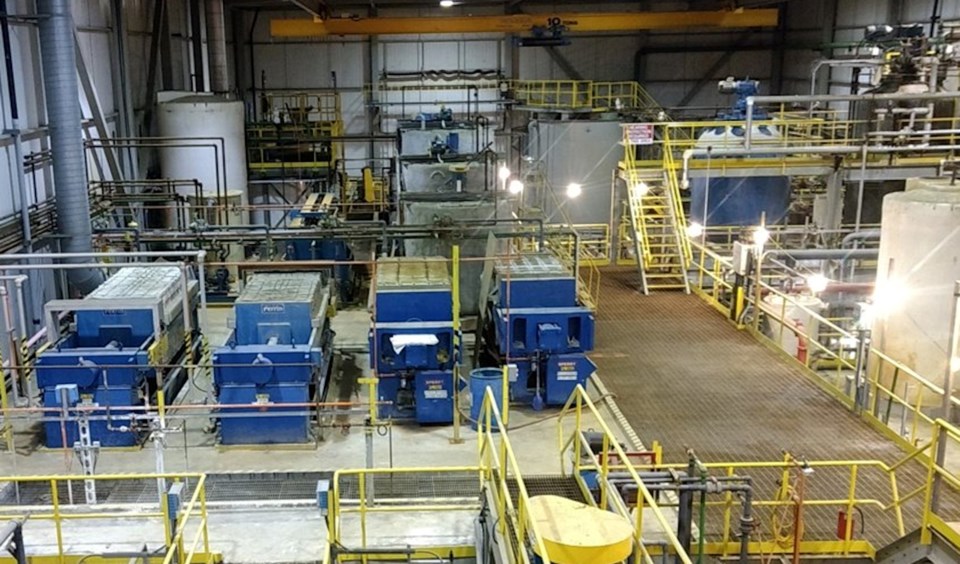Electra Battery Materials is cashed up to do a full-blown study of how to go about building a battery materials park in the Temiskaming area.
The Toronto company wants to process nickel and cobalt and recycled battery waste material to provide the North American auto sector with the materials needed to make lithium-ion batteries for electric vehicles.
Electra has raised $700,000 for the study with funding help from international nickel miner Glencore, Minnesota's Talon Metals, and the Ontario government.
The company said the battery park will be the first of its kind in North America, modelled after similar developments in China and Finland. But Electra intends to run it cleaner than Chinese nickel processing facilities with a net-zero operating environment.
The first component of the plant, a cobalt sulphate facility, is scheduled to be commissioned this year, to be ready to accept the first shipment of cobalt hydroxide from the Democratic Republic of Congo in December.
The cobalt processing plant will be only the first of a proposed four-phase expansion project at the former Yukon refinery that will include nickel processing, battery recycling, and a next-step process to blend cobalt and nickel into battery precursor cathode active materials (PCAM).
The cost to fully build out the development is in the $400 million to $500 million range. Between 200 to 300 direct jobs could be created when the entire complex is in production by 2026.
Sign up for the Sudbury Mining Solutions weekly newsletter here.
Things will be moving fast this year at the permitted site located between the town of Cobalt and Temiskaming Shores.
The next development step, involving a battery recycling circuit, comes online in 2023 followed by a battery-grade nickel sulfate facility and the PCAM processing plant by the middle of the decade.
In a news release, Electra said the study's objective is to assess all the technical, financial and permitting requirements to build a nickel sulfate refinery and the PCAM facility on its refinery property.
The company wants to incorporate best and low-carbon practices in finding ways to lower costs, shorten up the supply chain by using North American-mined raw materials, and reduce the operation's overall carbon footprint.
“There has been insufficient scrutiny of the nickel supply chain, particularly the very high carbon footprint associated with producing battery grade nickel from nickel laterite deposits, but that is starting to change,” said Electra CEO Trent Mell in a statement.
“The North American alternative that we are proposing is true to the mission of zero-emission vehicles to lower global greenhouse gases.”
This refinery is a two-hour drive from Glencore's nickel mines in Sudbury. The other study funding partner, Talon Metals, is developing a the high-grade Tamarack nickel-copper-cobalt project in central Minnesota under a joint venture with Rio Tinto.
Want to read more stories about business in the North? Subscribe to our newsletter.
Electra expects to deliver more positive news in the months ahead.
The company said it's in discussions with several established PCAM manufacturers in Europe, Japan and Korea, several of which are considering expansion to North America. It intends to partner with one of them to build a PCAM plant at the Temiskaming site. There will also be off-take announcements coming from companies working in the auto sector.
In the release, Michael Insulan, Electra's commercial vice president, said teaming up with Glencore and Talon provides a "clear path" toward making the park a reality.
"Glencore’s position as a global powerhouse in the battery materials sector provides the possibility for immediate raw material feed for the proposed nickel sulfate plant whereas Talon’s nearby Tamarack project is well positioned to become one of the most important nickel suppliers in the western hemisphere. It is essential for a low-carbon future that we process these materials to battery grade specification in North America.”




.jpeg;w=120;h=80;mode=crop)